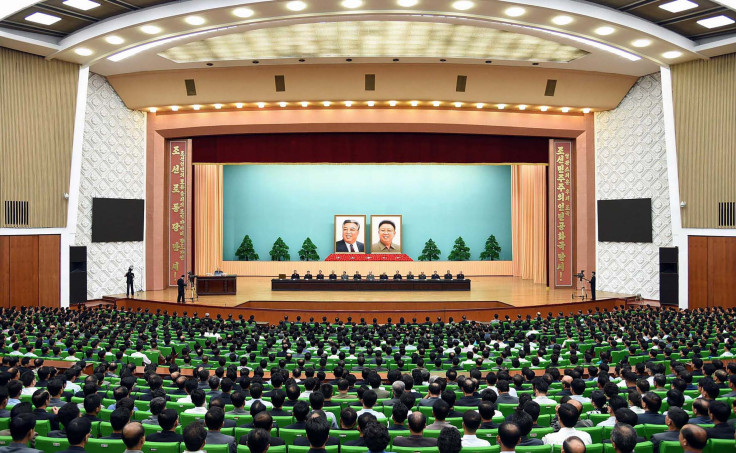North Korea Elections On March 10: What Voting In A Dictatorship Means

North Korea, formally called the Democratic People’s Republic of Korea (DPRK), will hold elections March 10, Korean Central News Agency (KCNA) announced Wednesday.
The citizens of the isolated country will vote for deputies to 687 seats for five-year terms. Elections in North Korea take place every five years, but citizens don't have much choice in choosing their candidates. Candidates from every district are chosen by the Democratic Front for the Reunification of the Fatherland, the governing coalition controlled by the Worker’s Party, which is the founding and ruling political party in DPRK.
In 2011, after the passing of Kim Jong Il, his son, Kim Jong Un became the supreme leader of the country. In the 2014 elections, Kim contested the election and won his seat unanimously because only his name appeared on the ballot paper. After this, the state media made a public announcement saying, “This is an expression of all the service personnel and the people’s absolute support and profound trust in supreme leader Kim Jong Un as they single-mindedly remain loyal to him.”
Due to the high level of control over the elections, experts on North Korea believe that while no major changes would be seen in terms of the government, there may be some changes within the leadership of the Supreme People's Assembly. The SPA is the unicameral legislature of North Korea, with a deputy from each of the 687 constituencies. It is the SPA that passes all the proposals by the government into a law, largely a rubber-stamp process to legitimize the decrees passed by the supreme leader.
Fyodor Tertitskiy, an NK Pro contributor and expert on North Korean leadership, said: “The SPA elections give the regime an opportunity to change the membership of the largest formal grouping of elites in the government, sort of a “who’s who” in North Korean politics."
Everyone above 17 years of age has to vote. The voting in itself is not secretive and the booths allow no privacy to citizens. The voters are given no choice, as the paper has the name of the candidate and voters can only choose to mark boxes labelled “Yes” or “No”. Voting "No" is considered an act of treason; these people are easy to find as there is a completely different box for the votes of dissent. Not voting at all is considered to be an act of treason as well.
According to a report by NK News.org, in 2014, defectors said elections were mostly held to test public loyalty, monitor the population and serve as a tool of state control. The elections often see a turnout of about 99 percent of the voters. It is later that security officials review data on non-voters to get information on all suspicious activity, the absentees who could be defected military personnel or workers who escaped to China.
© Copyright IBTimes 2025. All rights reserved.





















